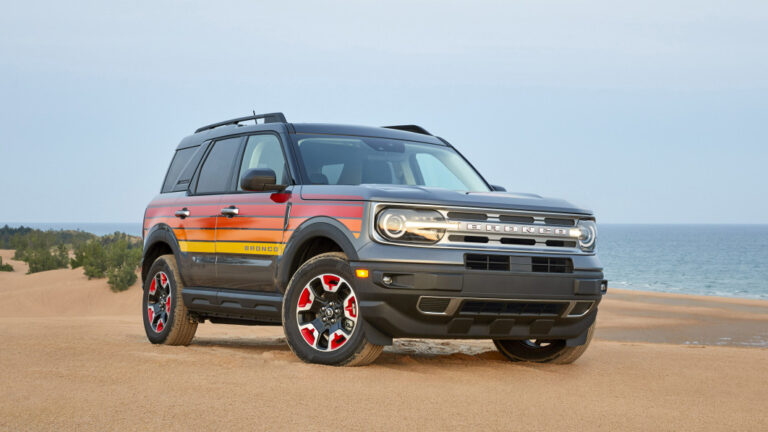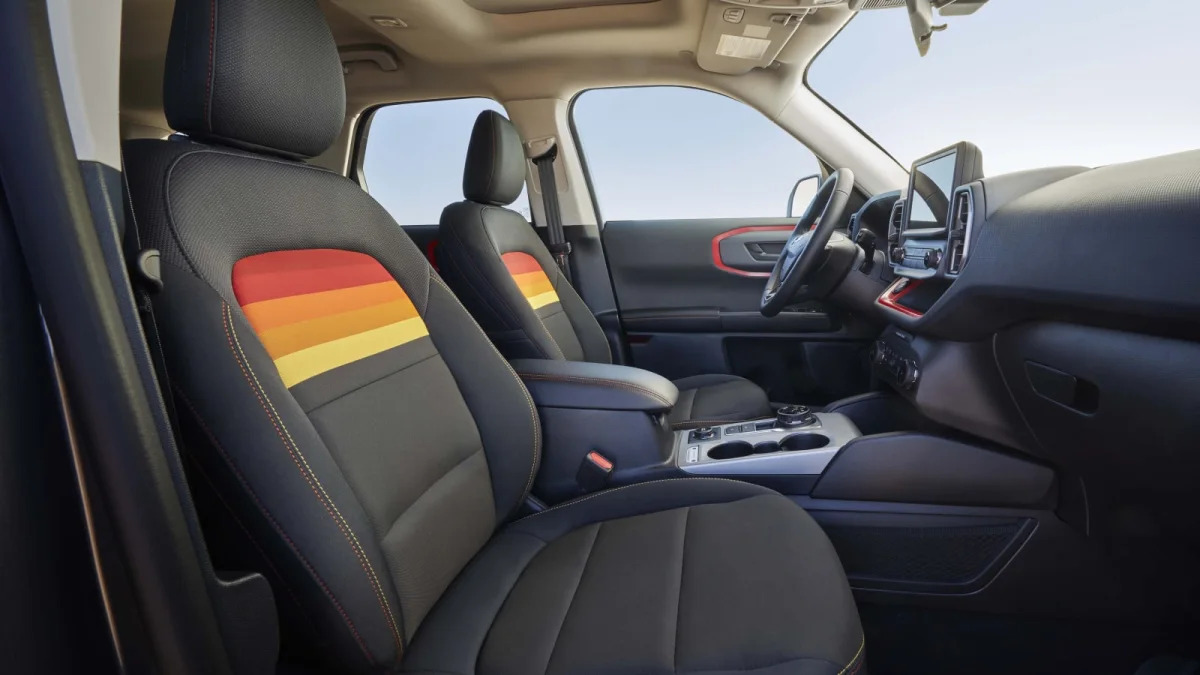Pros: Very capable off-road, especially Badlands; large and versatile cargo space; variety of trims and packages
Cons: Expensive for its size segment; tight back seat; not as refined on-road as competition
First, the bad news: The 2024 Ford Bronco Sport is pricier than you might think given its small dimensions. It costs a lot more than other subcompact SUVs, and apart from its standard all-wheel drive system and class-leading cargo space, its value will be questionable for many buyers.
OK, now the good news! The Bronco Sport is a lovable, versatile and just-plain enjoyable small crossover that’s especially perfect for those planning on getting their little SUV dirty. True, the range-topping Badlands is the best-suited for off-roading, but it’s important to note the Bronco Sport is more about what you’re doing after the drive as opposed to the drive itself. Its clever storage, functional roof rails, pop-up liftgate glass and available tow hitch are ready and willing to accept whatever outdoor adventure gear you’re packing. The driving experience is also charmingly more truck-ish than other subcompact crossovers, which just adds to the abundant character already provided by its style inside and out.
In other words, the Bronco Sport is best-suited to a niche of customers. Thing is, though, that niche (outdoor adventurers) is one many folks aspire to these days – even if many also admit they’ll rarely partake in that Patagonia-donning lifestyle. Either way, you should be pleased with the Bronco Sport. Should the price tag be concerning, though, the Subaru Crosstrek, Volkswagen Taos and off-road versions of the Toyota RAV4 provide a similar vibe at lower prices or with better value.
Interior & Technology | Passenger & Cargo Space | Performance & Fuel Economy
What it’s like to drive | Pricing & Trim Levels | Crash Ratings & Safety Features
What’s new for 2024?
If you’re a fan of the Houston Astros, and specifically their “tequila sunrise” unis of yesteryear, boy are you ever gonna love the Ford Bronco Sport Free Wheeling special edition introduced for 2024. It officially pays homage to Ford’s off-roaders of the 1970s (rather than Nolan Ryan and friends) and features five stripes of reds and oranges on the hood and sides, plus red-accented wheels. The interior gets similar stripes on the seats and red dash/door accents. It’s a lot. For the exact opposite effect, the new Black Appearance package for the Big Bend trim level adds matte black wheels, a contrasting black roof, sport seats and badging. Finally, the Outer Banks and Badlands trims get a nicer steering wheel cover, and two new exterior colors debut: Azure Gray and Desert Sand. Sadly, a whole heap of colors bite the dust: Alto Blue, Area 51, Cyber Orange, Iconic Silver, Peak Blue and Yellowstone Metallic. They weren’t alone: The base Bronco Sport is no more, which raises the base price even higher.
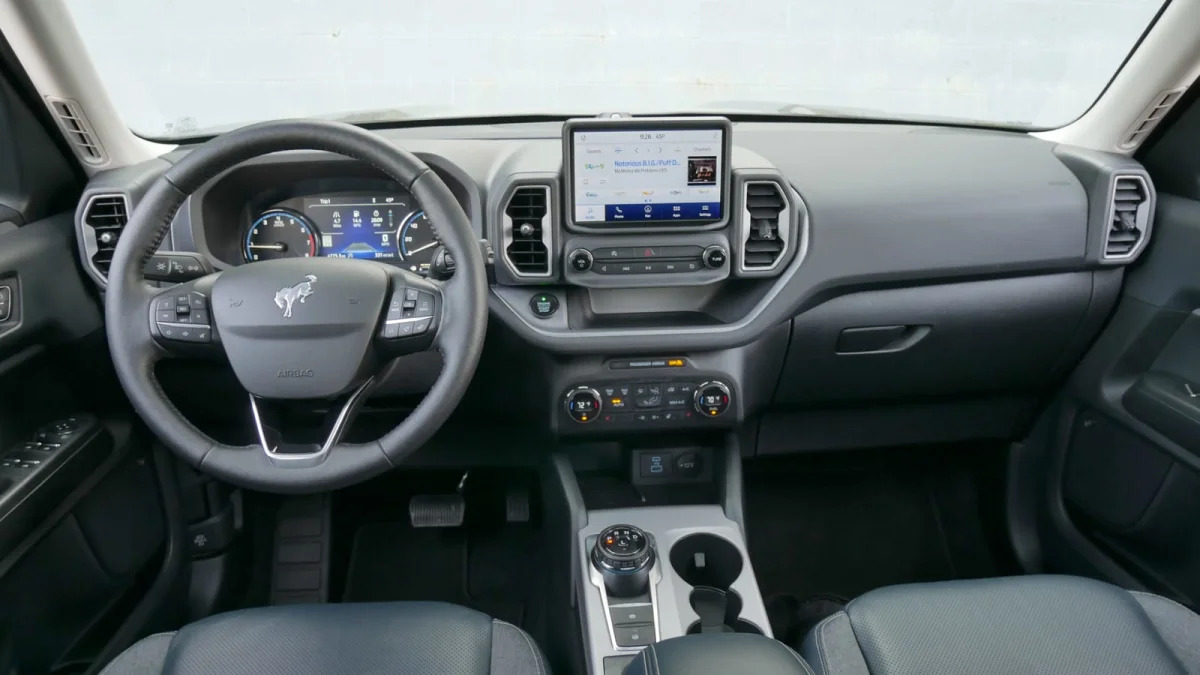
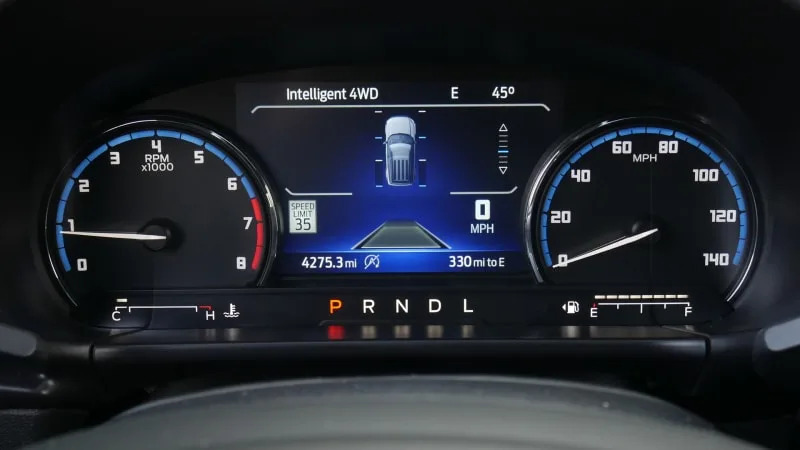
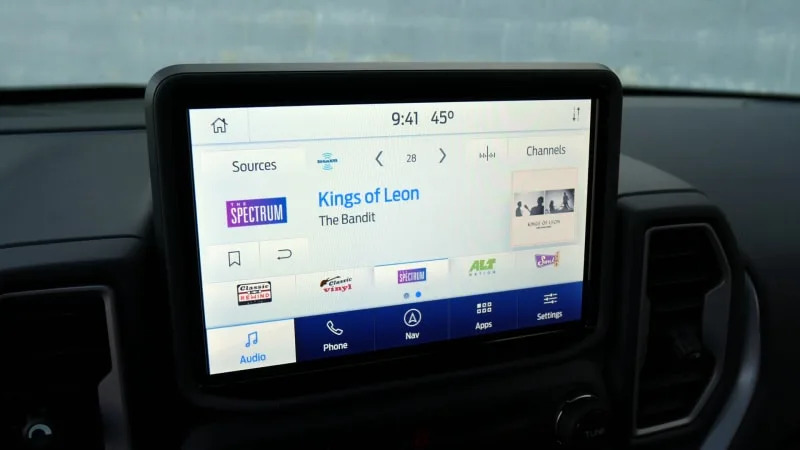
What are the Bronco Sport interior and in-car technology like?
The Bronco Sport feels like a little truck inside. You sit in an upright position and gaze over a long, straight hood with two large power bulges. Compared to the mechanically related Escape, the Bronco Sport’s unique cabin design is more upright and utilitarian. The air vents are high, straddling the shared 8-inch touchscreen, freeing up space for a handy shelf for a phone or something else small. There are also nifty touches like the rubberized, graspable adjustment prongs on those air vents, plus high-quality pieces like the spongy soft-touch dash and sturdy GOAT Modes dial (that would be Go Over Any Terrain, the Bronco term for off-road drive settings). Admittedly, there are cheaper plastics in the Bronco Sport than you’ll find in less-expensive subcompact SUVs, but at least Ford’s use of color and fabric choices in certain trims makes up for it in some respects.
Interior storage is also exceptional. Beyond the multiple storage solutions up front, there are numerous features as you move rearward for weekend hiking and camping warriors. Certain trim levels get zippered pockets and MOLLE straps on the front seatbacks (how has no one thought of these before?), the liftgate has two LED camp lights and big grab handles that can double as a place to hang wet items, and the raised roof rails are the robust real deal (not raised or fake rails with fixed attachment points). Plus, there’s also the extensive outdoor lifestyle option and accessory list, which includes in-vehicle dual-bike storage capability and rubberized easy-to-clean flooring.
The infotainment system is Ford’s previous-generation software and is not the quickest unit out there, but it’s still easy to use and presents well. Four USB ports are standard. A 4.2-inch central screen in the cluster is too, but higher trims offer a larger 6.5-inch screen in between the physical gauge set.
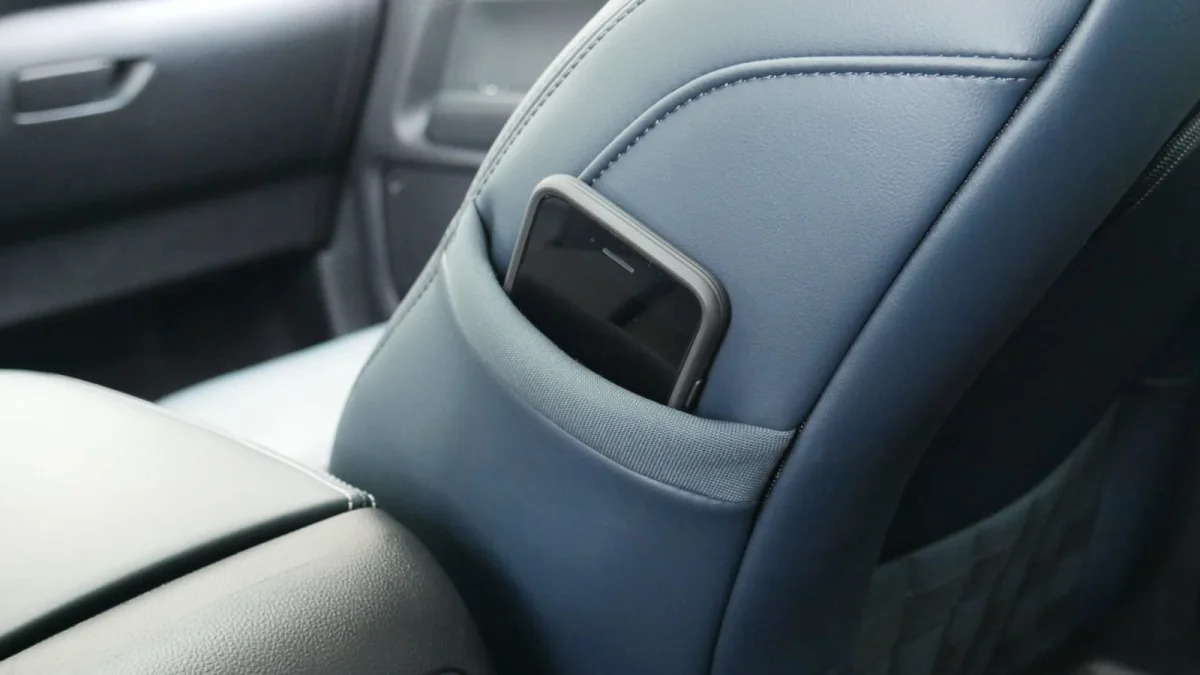
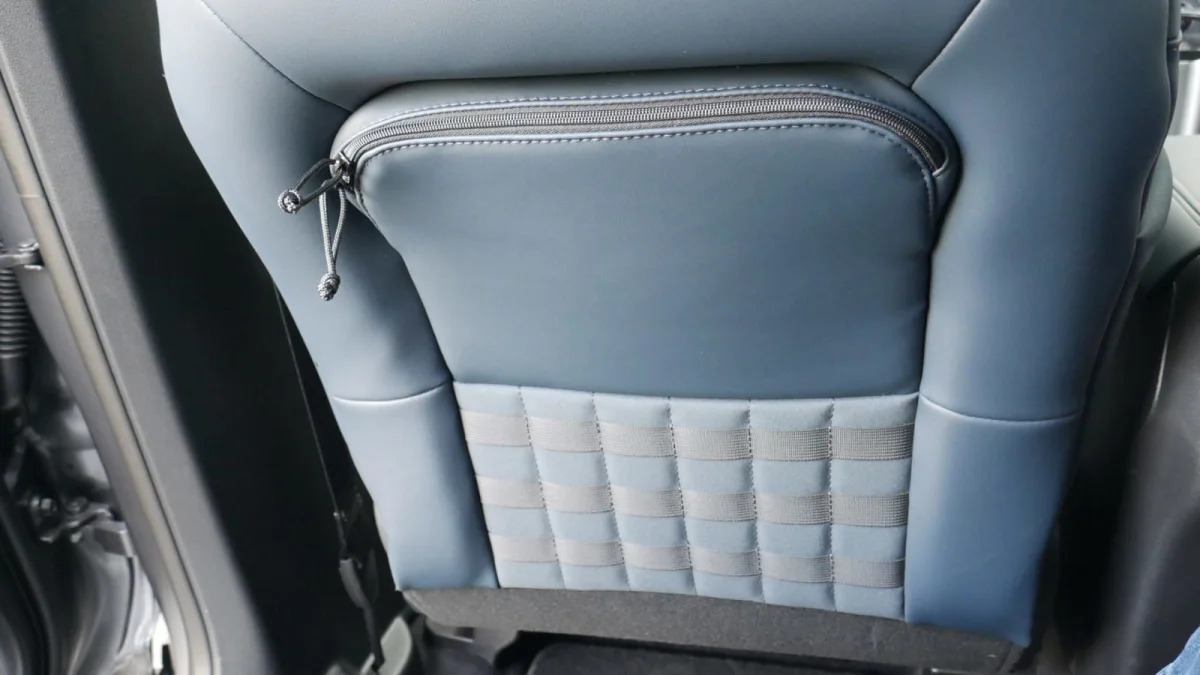
How big is the Bronco Sport?
While the Bronco Sport may ride on the Escape’s platform, it’s a good deal smaller than the Escape in overall size. It’s a subcompact SUV, and as such, aligns with a Chevrolet Trax, Kia Seltos and Volkswagen Taos. The small size is great for off-roading in tight situations, but it’s less family friendly than many other, more road-oriented crossovers.
You can comfortably seat adults in the back, but it’s far from the most spacious in the segment. Rear legroom in particular can be cramped, unlike the Trax and Taos. As such, a rear-facing child seat is a tight fit, so this isn’t the best choice for families despite having plenty of cargo capacity to do the job. Indeed, its 32.5 cubic feet of space behind its raised back seat blows away crossovers that are similarly sized on the outside and rivals those that are much bigger like the Honda CR-V and Toyota RAV4. In fact, you have to slide the Ford Escape’s back seat far forward in order to match the Bronco Sport’s luggage-carrying capability. How is it possible? When it comes to cargo, boxes are better. We dig deeper into the Bronco Sport’s best-in-class cargo capacity in our luggage test.
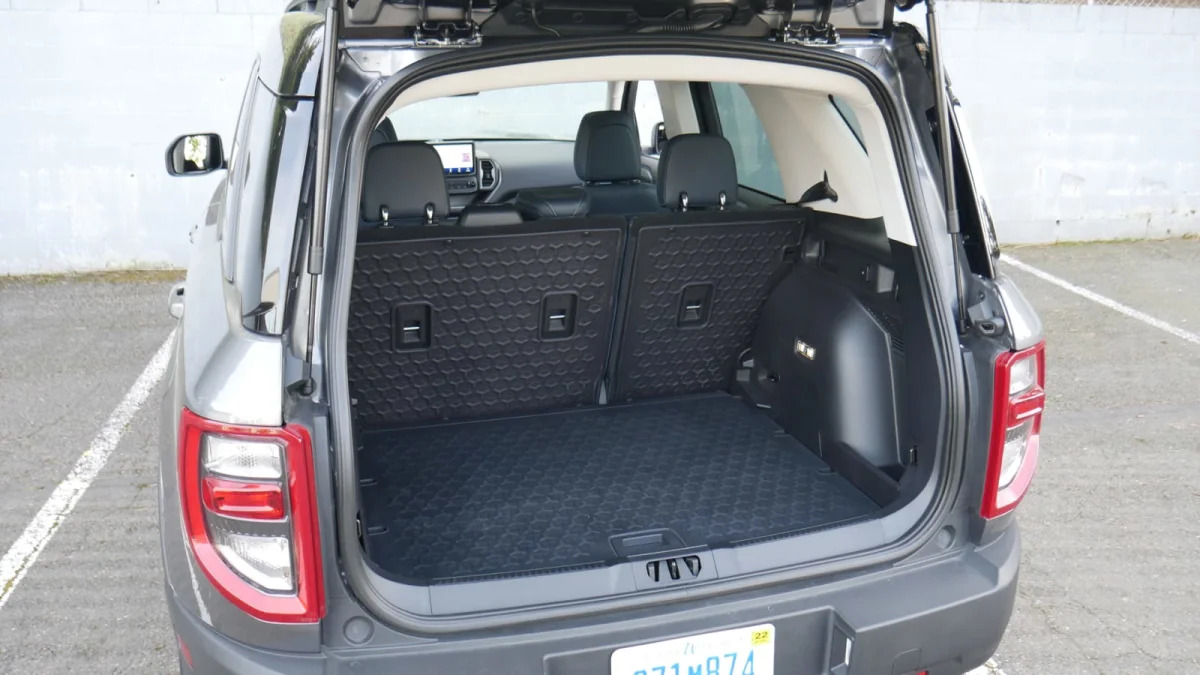
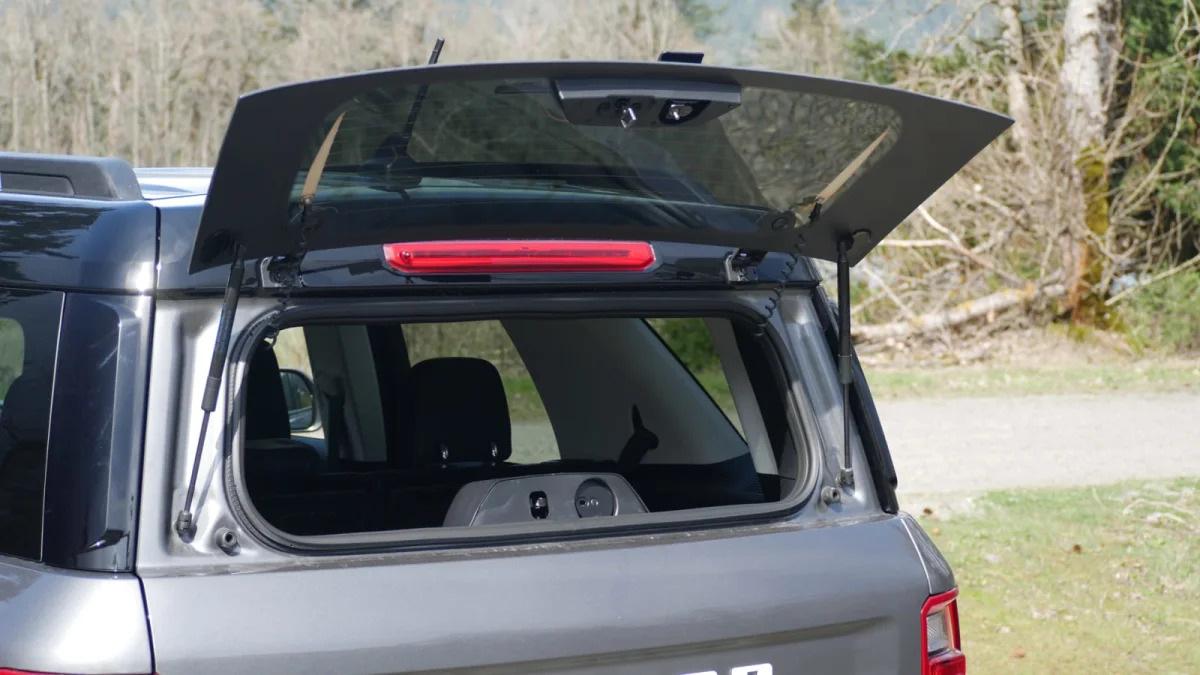
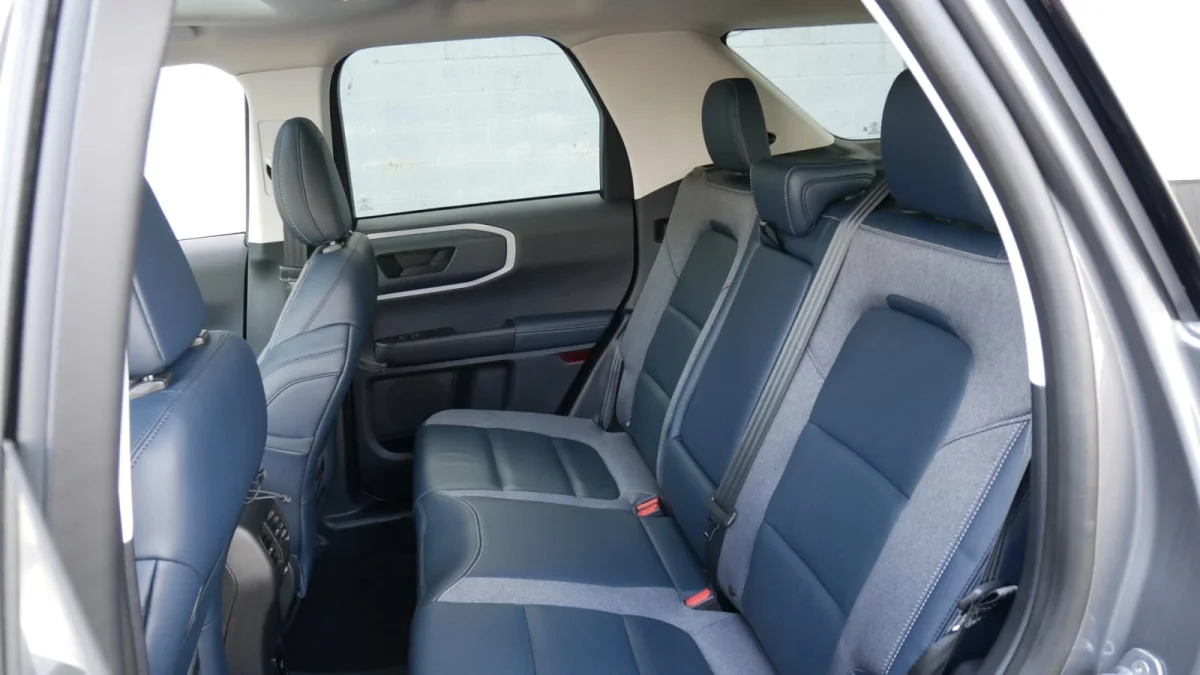
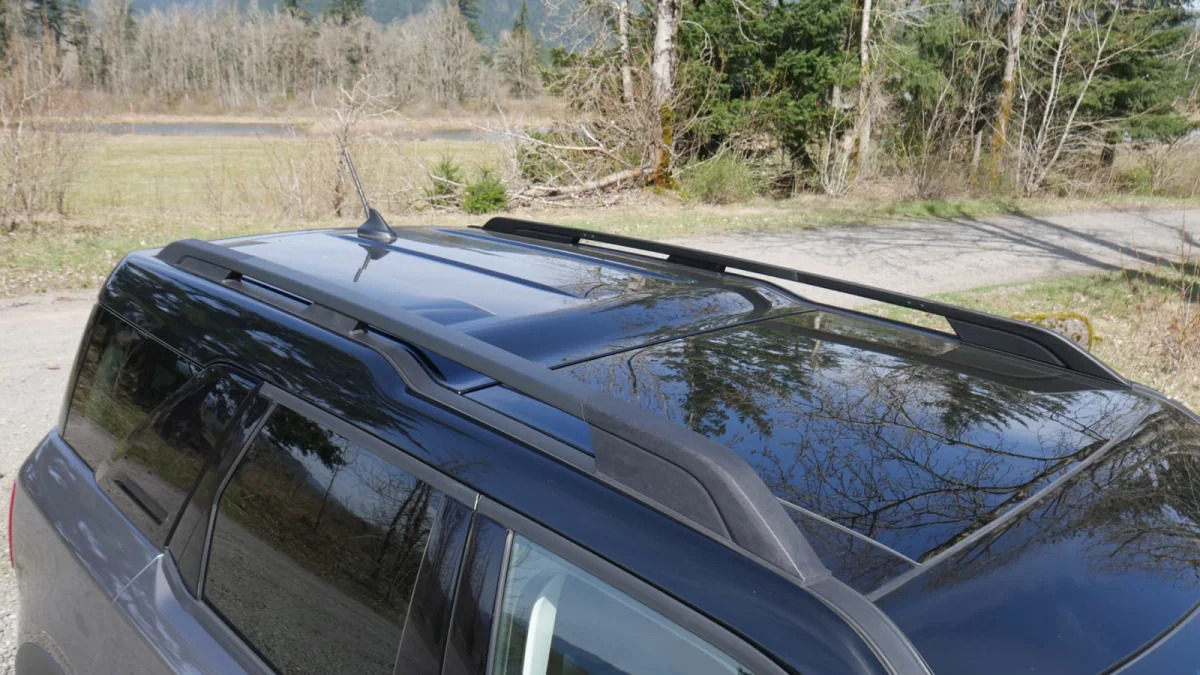
What are the Bronco Sport fuel economy and performance specs?
All trim levels but the Badlands are powered by a 1.5-liter turbocharged three-cylinder that produces 181 horsepower and 190 pound-feet of torque. It’s paired to an eight-speed automatic transmission, and all-wheel drive comes standard. Fuel economy is rated at 25 mpg city, 29 mpg highway and 26 mpg combined. This is considerably lower than most subcompact SUV competitors, but the same as the similarly off-road-oriented Subaru Forester Wilderness and just a bit lower than the Toyota RAV4 TRD Off-Road. The RAV4 Woodland Edition is the soft roader to pursue if fuel efficiency is a priority, as it gains the upgrades of the TRD Off-Road, but pairs them with the hybrid powertrain for 37 mpg combined. Of course, all of the above are bigger than the Bronco Sport.
Exclusive to the Badlands is a 2.0-liter turbocharged four-cylinder. This engine puts out 250 horsepower and 277 pound-feet of torque, which is far more than the subcompact norm and those bigger, off-road-oriented SUVs. It’s also mated to an eight-speed automatic transmission, but it adds a torque-vectoring rear differential to the rear axle for better off-road performance. Fuel economy falls even further to 21/26/23 mpg with the bigger engine.
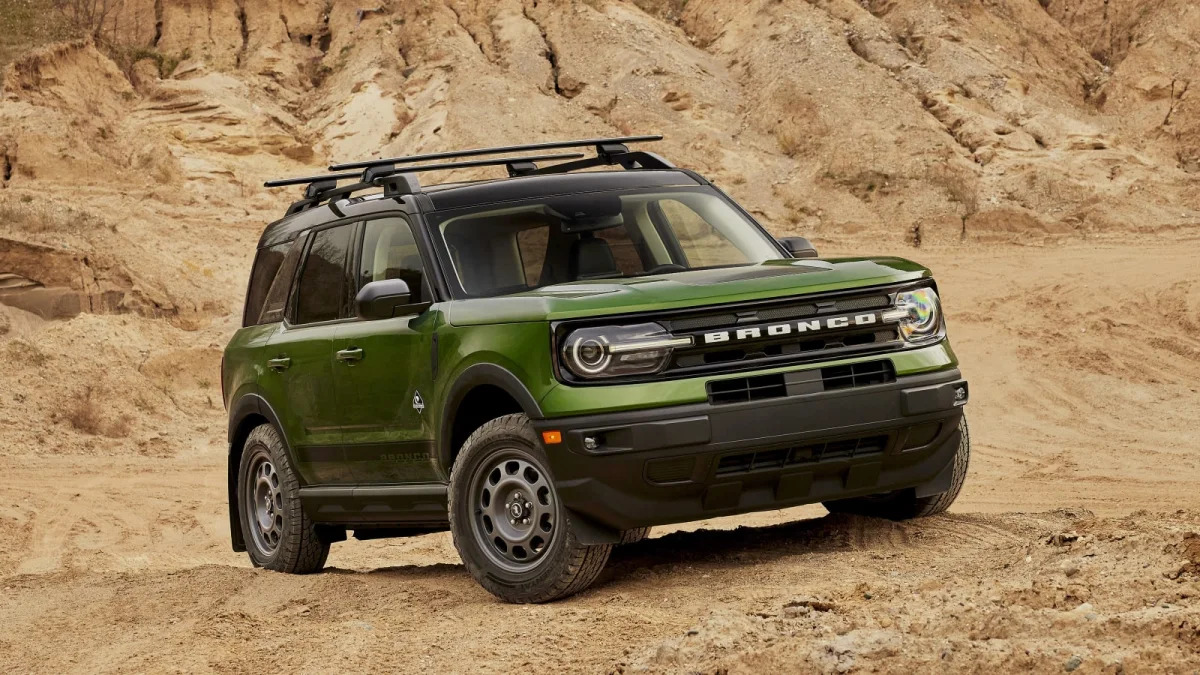
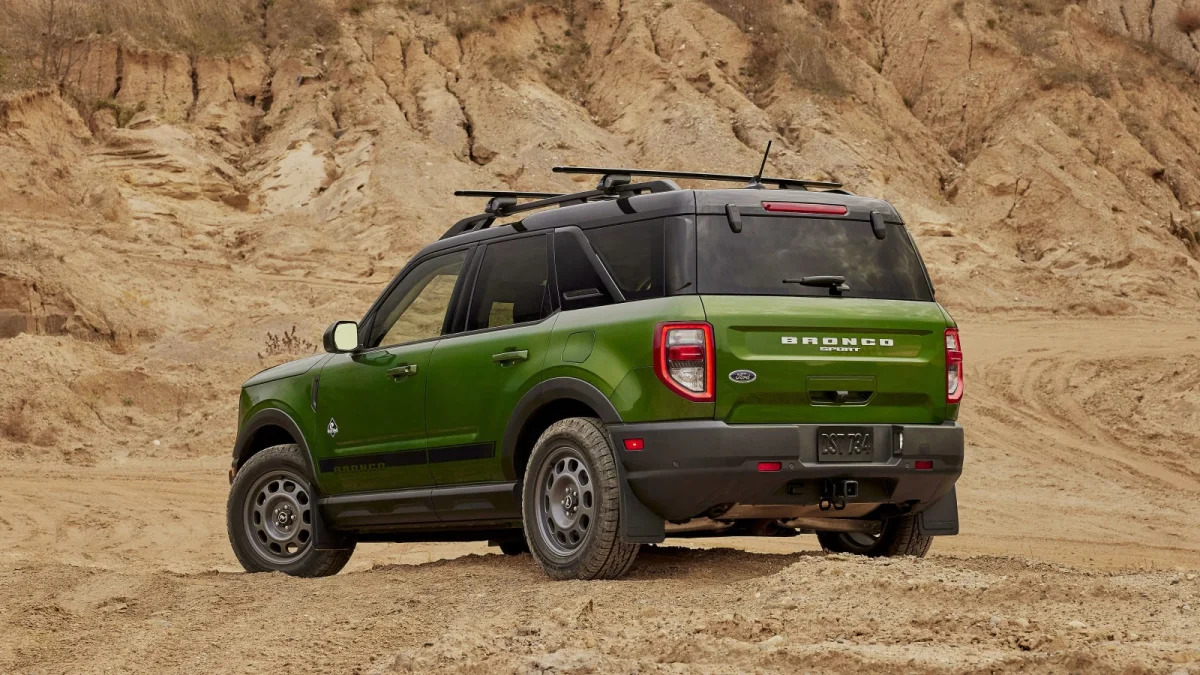
Black Diamond off-road package adds underbody protection, gray-painted wheels, all-terrain tires, special graphics and tow package to Big Bend.
What’s the Bronco Sport like to drive?
The rugged Bronco Sport is charming and different in a segment that skews toward the on-road side of the SUV spectrum. The steering has a hint of play/liveliness, making for a small truck feeling on the road, but still possesses the precision we’ve come to expect from Ford’s cars and crossovers. Regardless of trim level, there’s an extra bounce and stiffness to the on-road ride you don’t get in other crossovers this size, likely the result of its shorter wheelbase and off-road-ready suspension. That doesn’t translate into corner-carving prowess, as the Bronco Sport is a little sloppy when you start to push. More on-road-intended competitors like the Kia Seltos, VW Taos and Mazda CX-30 have both superior ride comfort and better handling. So too does the mechanically related Ford Escape.
When off-road, though, the Bronco Sport shines and is way better than you might expect. Each GOAT (Go Over Any Terrain) mode makes the Bronco Sport drive noticeably different by altering the all-wheel-drive torque split, transmission shift points, traction control/stability control settings, throttle tuning, brake tuning and steering weight. It’s also important to note that the Badlands has an extra inch of ground clearance over the other versions. While inching along a trail, we could hear an Outer Banks and Big Bend Bronco Sport bottoming out in places where our Badlands was just fine. Its torque-vectoring all-wheel-drive system was also beneficial when driving in sand. At the same time, no one will mistake the Sport for its big Bronco brother. It’s still a crossover and intended to be quieter and more comfortable on-road at the expense of capability off-road.
The 1.5-turbo is not especially quick, but is peppy and has the gravelly bulldog-ish growl that’s typical of a three-cylinder. The transmission melts into the background, which is just as well for a vehicle like this — it neither frustrates nor wows. As standard powertrains go, you can do a lot worse in the small crossover realm. That said, you can also do a lot better and go with the 250-hp 2.0-liter found in the Badlands, which is further paired with an upgraded, torque-vectoring all-wheel-drive system that’s as much a benefit on road as it is off. It should be offered in more trims.
What other Ford Bronco Sport reviews can I read?
2021 Ford Bronco Sport First Drive
A closer look at the Bronco Sport’s design and engineering, including driving impressions on and off-road.
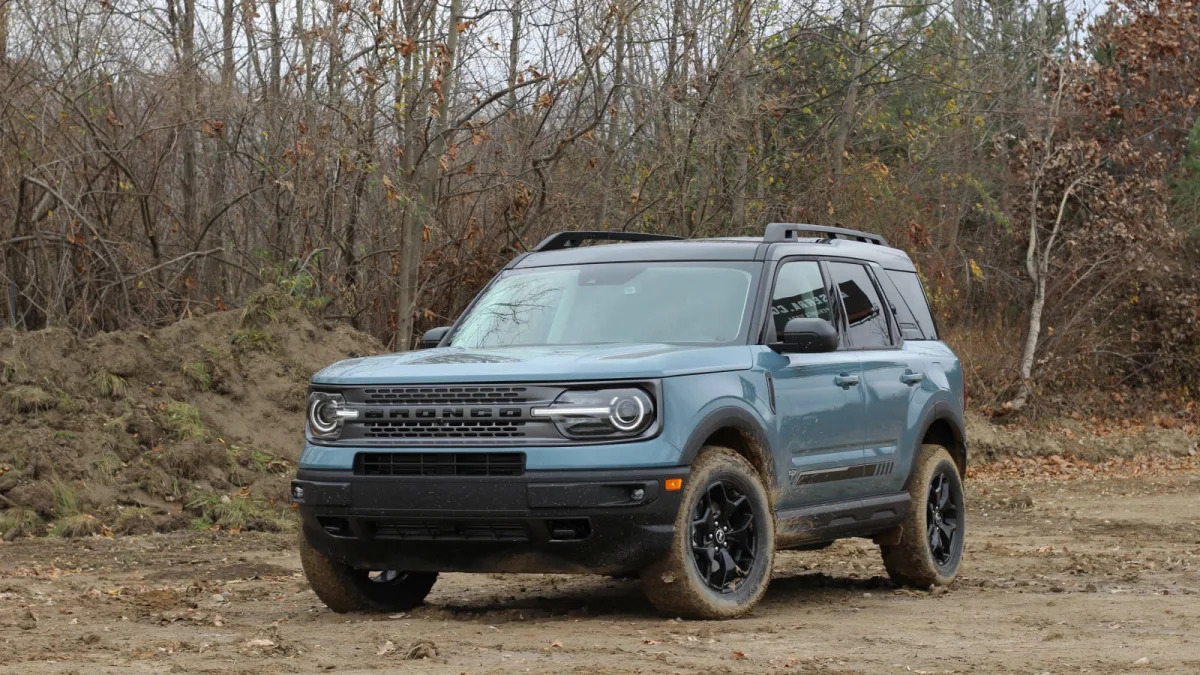
Ford Bronco Sport Badlands Road Test Review
A look at the range-topping Badlands, specifically, including its unique 2.0-liter turbo engine and torque-vectoring all-wheel-drive system.
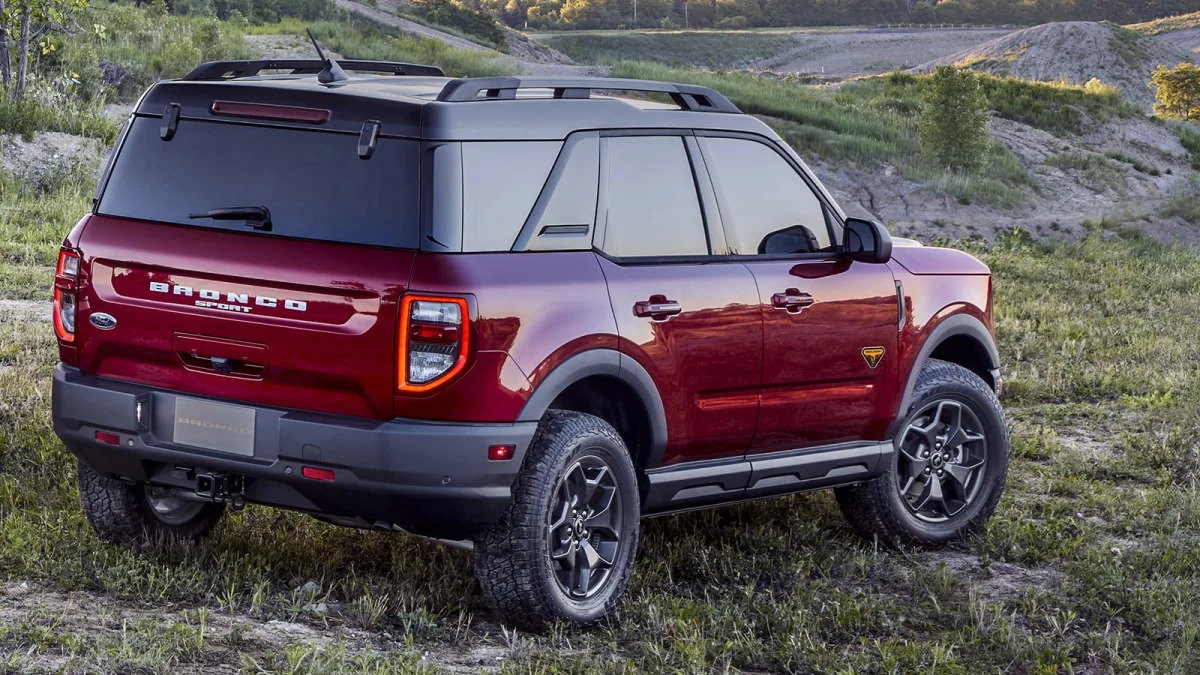
Ford Bronco Sport Interior Storage Review
There are a multitude of clever storage solutions inside the Bronco Sport, from MOLLE strap connectors to an in-car bike rack. We go over everything in this review.
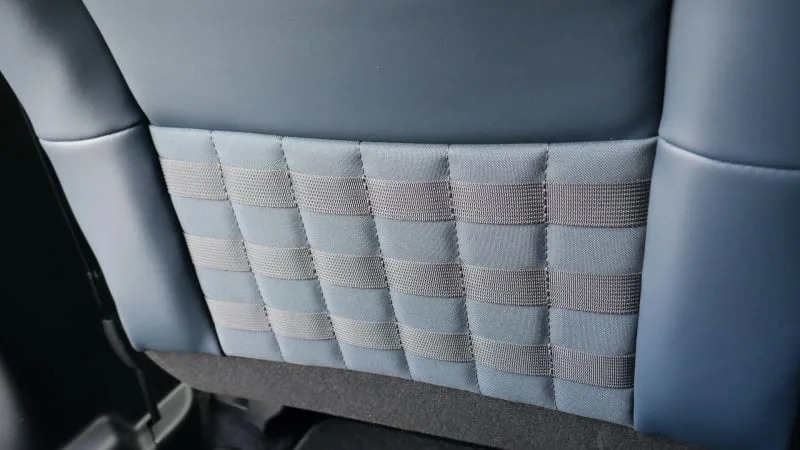
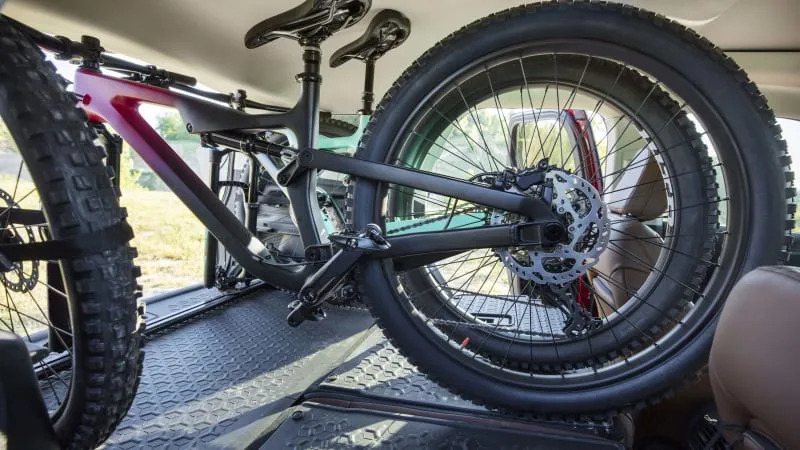
Ford Bronco Sport Luggage Test
Find out how much real-world cargo space there is behind the Bronco Sport’s back seat.

Ford Bronco Sport Badlands Suspension Deep Dive
Engineer Dan Edmunds takes a close look at the Bronco Sport Badlands suspension, explaining how it all works and what the effects are.
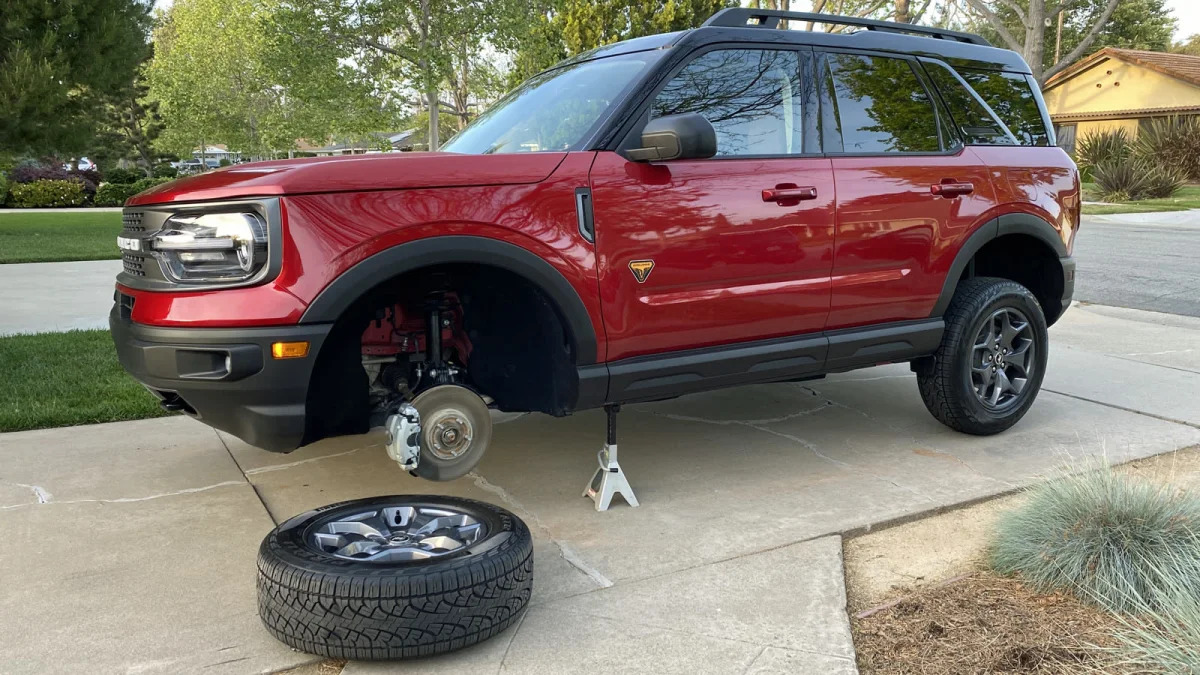
Ford Bronco Sport Design Deep Dive: How the little Bronco came to life
We sit down with the design team to learn what went down behind the scenes.
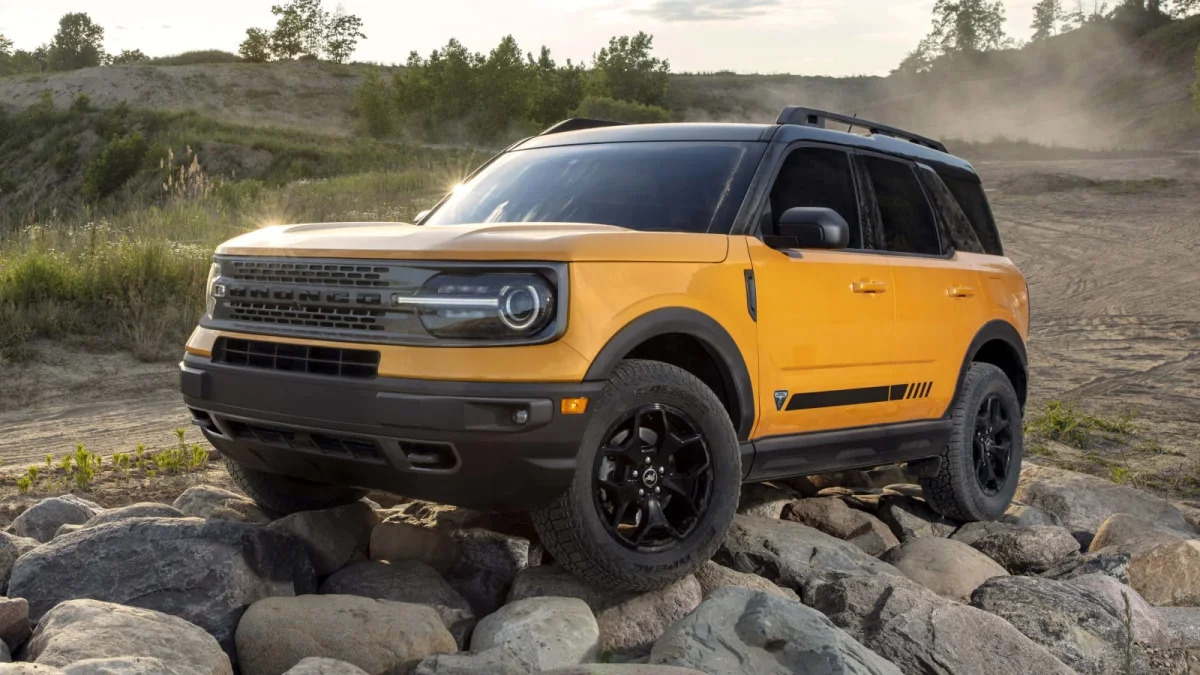
What is the 2024 Bronco Sport price?
As much as we like the Bronco Sport, it is very pricey for an SUV of its size. It got even worse for 2024 since the base trim level was discontinued, leaving the Big Bend trim as the point of entry. The destination and acquisition charges were also jacked up to an absurd $2,240 that you have to pay. We’ve included that in all prices below.
The core Bronco Sport trim levels are Big Bend, Outer Banks and Badlands, with the Heritage and Free Wheeling more like Big Bends with appearance packages (they are pictured below). Although equipment does increase with each of those core trims, there are fundamental differences. Chiefly, the Outer Banks and Badlands go in different directions beyond the standard equipment offered by the Big Bend. The Outer Banks adds a ton of comfort and convenience features, plus the colorful interior options. The max off-road-oriented Badlands includes the same comfort and convenience items, but with different interior color and exterior design cues. Crucially, it also includes a huge array of off-road goodies like the torque-vectoring rear diff, additional transmission and rear-drive coolers, bash plates, front tow hooks, all-terrain tires and unique Badlands suspension.
Big Bend: $33,470
Heritage: $35,940
Free Wheeling: $35,970
Outer Banks: $38,155
Badlands: $40,630
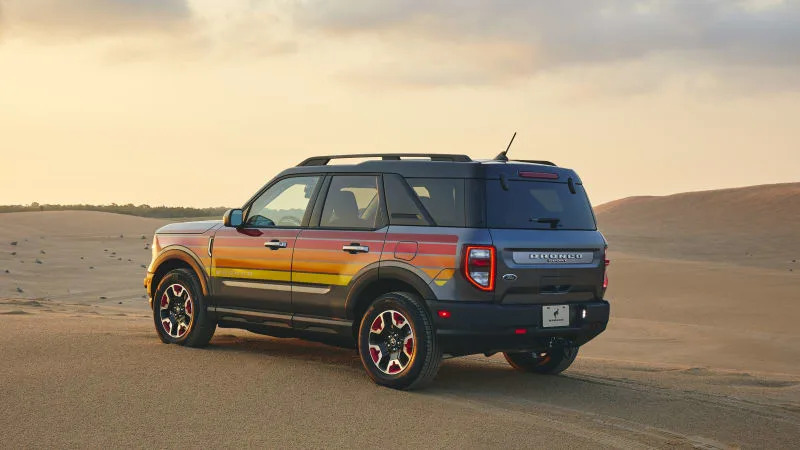
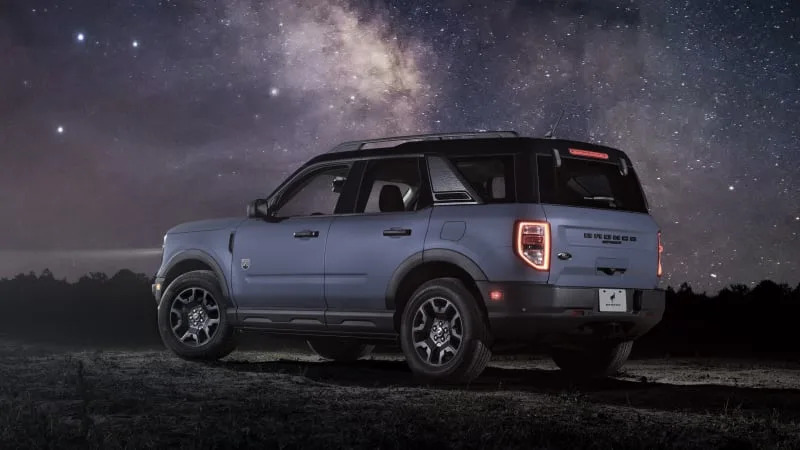
What are the Bronco Sport safety ratings and driver assistance features?
Every Bronco Sport comes with the Ford Co-Pilot360 driver assistance suite as standard. This includes forward automatic emergency braking, blind-spot and rear cross-traffic warning, lane-keeping assist and auto high beams. An Assist+ package is available that adds adaptive cruise control, lane centering assist, evasive steering assist and speed sign recognition.


